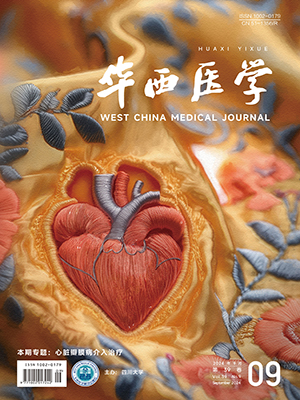目的 了解局部麻醉下腹股沟疝无张力修补术后患者排便变化的相关影响因素。 方法 采用自行设计的问卷调查表,对2010年5月-6月行无张力修补术的腹股沟疝患者术后排便情况及变化进行调查,并就相关影响因素采用logistic回归方法进行统计分析。 结果 腹股沟疝无张力修补术后患者进食量减少、活动量减少、饮食成分变化、担心排便引起复发是术后排便变化的影响因素。 结论 加强该病症术后健康宣传,指导患者正常进食、多活动,消除患者对腹股沟疝复发的焦虑,可促进其早期排便。
Objective To research on the risk factors for change of defecation after inguinal hernia mesh-repairs under local anesthesia. Methods Self-made questionnaires were used to investigate the defecation change among patients having undergone inguinal hernia mesh-repairs from May to June 2010, and the correlated factors for change of defecation were analyzed by logistic regression analysis. Results Reduction of activity and food, changes of food ingredients, and worries about recurrence were risk factors for change of defecation. Conclusion In order to facilitate the recovery of the patients, nurses should promote patients’ knowledge on the surgery, guide them to eat as usual and do more exercises, and eliminate their anxiety on recurrence of the disease.
引用本文: 陆安清,李卡,李克书,雷文章. 腹股沟疝无张力修补术后排便变化相关因素分析. 华西医学, 2012, 27(1): 94-96. doi: CNKI: 51-1356/R.20120115.1552.024 复制




